With moviegoers in much of the world sequestered at home, social media has proved key in maintaining communication, both within the exhibition community and between exhibitors and customers. A previous Boxoffice LIVE Session tackled the latter topic from a marketing standpoint, while earlier this week a panel convened to discuss how social media campaigns are creating much-needed unity within the industry as a whole.
“Loving cinema is like a relationship,” said Stéphane Landfried of the French trade body FNCF. “You need to keep the flame alive.” Helping to keep the candle burning during this period of shutdown are a group of international campaigns—including #OnIraTousAuCinema in France, #JuntosPorElCine in Spain and Mexico, #VamosAssistirJuntos in Brazil, and #MoviesTogehter in English-speaking territories—designed to rally the industry together and promote a love of the moviegoing experience.
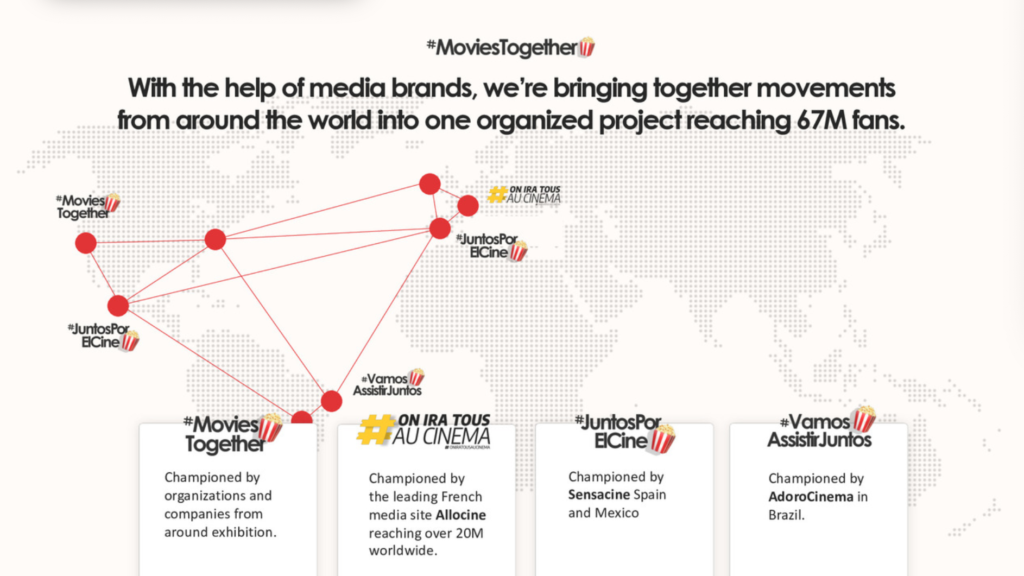
The movement began in France, where shortly after theaters closed Landfried “quickly noticed [that], due to the shock of this unprecedented event, theaters were no longer communicating much with their audience. At the time, we felt it was particularly important to be in touch with them.” The FNCF took to Facebook, posting content designed to “inspire theaters to use social media to reach their patrons… Right around the same time, The Boxoffice Company and AlloCiné’s teams in France were looking to start an initiative and decided to align themselves behind this same [#OnIraTousAuCinema] hashtag, which allowed us to reach a wide audience right away.”
The expansion of the campaign globally, explained The Boxoffice Company’s chief product officer Marine Suttle, came about because “the idea was to have a global initiative that we could launch easily with our technical and visual marketing experience.” In addition to the MoviesTogether.org website, a media kit gives exhibitors content to share with customers, which is “really what’s going to make the movement pick up.” That’s certainly the experience in France, where videos created in partnership with AlloCiné—of French film personalities sharing their love of the cinema—has led to customer engagement that “surpassed all our wildest dreams,” said Landfried.
“Cinemas received so many comments about how much they missed the cinema experience. All this has proven to be a very uplifting, very positive experience for everyone,” added Landfried. “In the very first days of the campaign, the hashtag reached tens of thousands of people in France.” Video content expanded that social media reach to tens of thousands. “We are very encouraged by these numbers and feel confident it is helping theaters out of low morale and [helping] movie fans keep moviegoing in mind. It’s also called the attention of major French newspapers and magazines, thus creating a positive buzz around the idea that people miss moviegoing.”
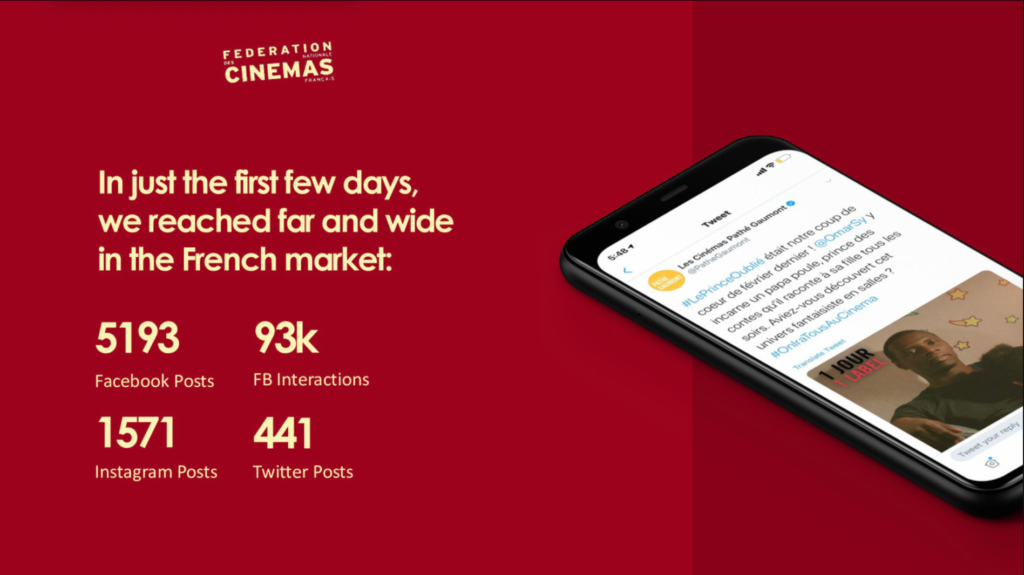
If assets like videos are released consistently, argues Suttle, there’s no harm in starting a back-to-the-cinema campaign now, versus a month or so down the road when reopening timelines have become more clear. “As long as the continuity is there, starting now is not a problem. The key is staying top of mind. There are initiatives in every industry to support businesses that are struggling right now. And cinemas is one of the hard-hit areas. I think it’s fair for us, for the industry, to ask for support through donations or simply for people to get excited about it, as long as content follows every few days.” The plan, Suttle explained, is to create something that helps guide cinemas all the way through the reopening process in three key steps: laying the foundation with assets and content, getting others (like exhibitors and media partners) involved, and creating communication assets and suggestions for how theaters can successfully reopen.
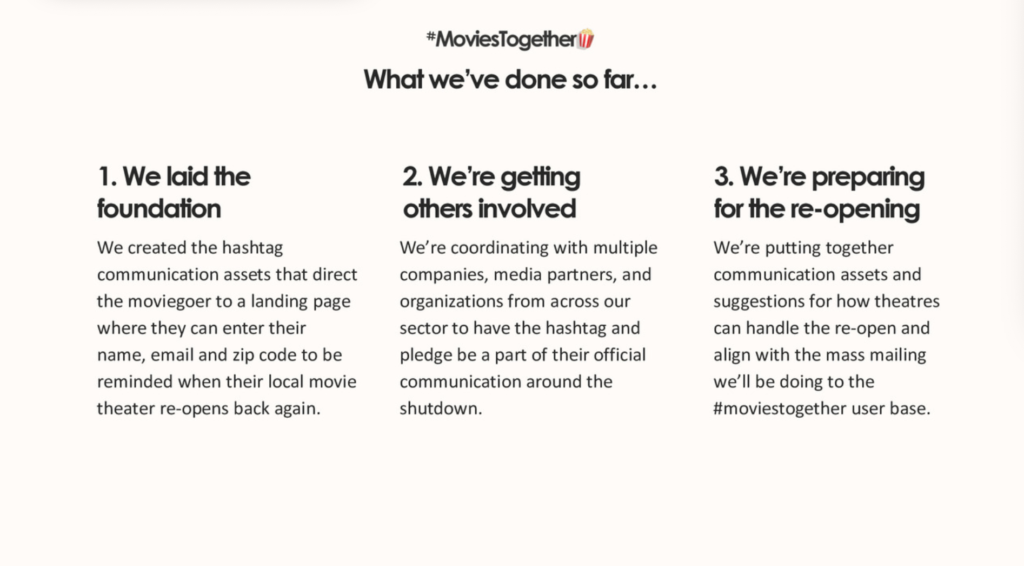
Crossing the border to Germany, a different content bridged B2B and B2C divide to help draw attention to cinemas. As a cinema advertising company, Weischer.Cinema is not used to communicating directly with the moviegoing public as part of its normal operations. That changed with the creation of #HilfDeinenKino.
“As soon as the cinemas were closed, we didn’t have any business,” reflected managing director Frank Senger. “And the we thought, ‘OK, do we really not have any business? We heard about music artists who asked their fans, even if they were not able to see the show, don’t cancel the tickets. … Just pretend as if the show were still on, to help artists. And we thought, if they pretend the show is still on, [why don’t] we don’t we pretend that the show is still on, and just show the people the pre-show they would normally have seen in the cinema online?”
A website was set up in five days (“I still don’t know how we did it, but we did.”) that allows moviegoers to watch the ads they would have watched as part of a movie theater pre-show, with the money those ads generate going to the theater of their choice. A donate button provides a second way to give money to a favorite theater. “We went online April 20, and this thing went viral,” said Senger. The media reached out, asking for interviews, which increased the profile of the project. As of the morning of the LIVE Session, #HilfDeinenKino had 450,000 visitors who watched 4.1 ad spots and donated 40,000 Euros. Said Senger, “The exhibitors are quite happy with it. As long as the cinemas are still closed, we’ll continue doing this.”
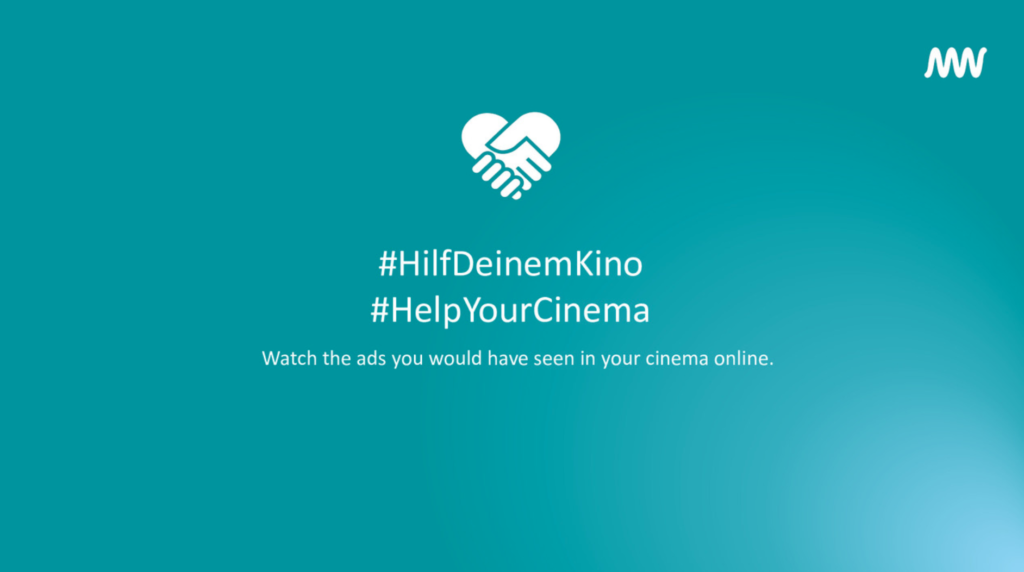
Sometimes, in order to reach new audiences, it helps to be able to piggyback on someone else’s social media following… which has certainly helped Will Rogers Motion Picture Pioneers Foundation though its fundraising on behalf of furloughed theater employees in the United States. The group has been the target of several third-party fundraisers—in the words of executive director Todd Vradenburg, fundraisers where “someone else is doing it. Someone else is taking responsibility for raising the money. The accounting the money. They’re simply going to send the charity a check.”
The most visible of Will Rogers’ third-party fundraisers is the YouTube streaming series Lionsgate Live!, which winds up this Friday with a free screening of John Wick: Chapter 3—Parabellum. Interspersed with the film are cameos from film stars and calls to action to donate to Will Rogers, the result of which is “about a thousand people, 1,500 maybe, over the last couple of weeks that have jumped onboard with supporting the efforts,” said director of development Christina Blumer. “We couldn’t have asked for anything better, as a smaller charity. Something like is a really big opportunity for us. We don’t get calls like that every day. So to be part of something like this is really huge.”
“For us, because our reach is perhaps not as large as some of the other organizations involved, being tied to something bigger—like a Lionsgate—is really what’s helping us communicate on a larger scale,” said Vradenburg. Other industry partners have stepped up to the plate with third-party fundraisers. Popcornopolis donates 10 percent of their proceedings tied to Lionsgate Live! to Will Rogers. Kernel Season’s ran an “old fashioned fundraising campaign,” said Vradenburg, reaching out to their clients, vendors, and social media following asking for donations. Malco Theatres hosted a trivia night in support of Will Rogers, while Cinema In Flux is selling Will Rogers merchandise—with proceeds, of course, going back to the Pioneers Assistance Fund.
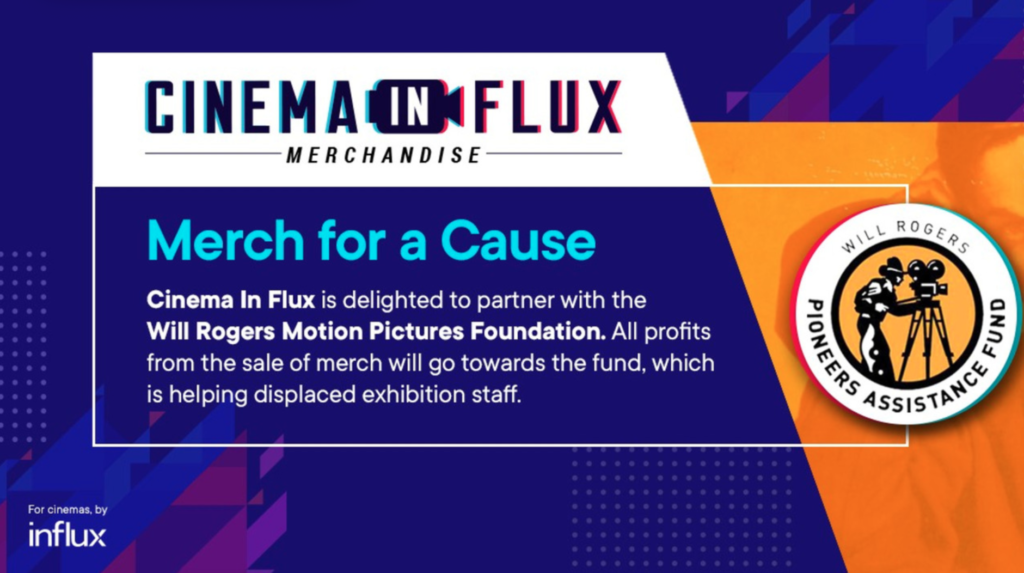
Film Row, an affiliate organization of Will Rogers, jumpstarted their own “Quarantrivia Night,” which doubled as a fundraiser and a much-needed social activity. “As you know, this is a very social industry,” said Vradenburg. “And this is an opportunity to have some social interaction, have some fun, and raise a little money for charity. We’re happy to see that the Canadian Pioneers are now doing a trivia night, also.… Who knows, maybe we’ll put together a nice little friendly rivalry?”
Partnering with other brands—whether studios, exhibitors, vendors, or partner groups like FilmRow—has helped Will Rogers reach people outside the film exhibition industry, which Blumer describes as unusual. “With the current situation going on, I think everyone, even outside the industry, has a newfound appreciation for people who work at movie theaters. And they realize the value theatrical entertainment brings. And so the support that we receive from the general public for a charity that supports the industry is something that we’ve never seen before. It’s really fantastic to see the support coming in.”
Disclaimer: The Boxoffice Company is the parent company of Boxoffice Pro.

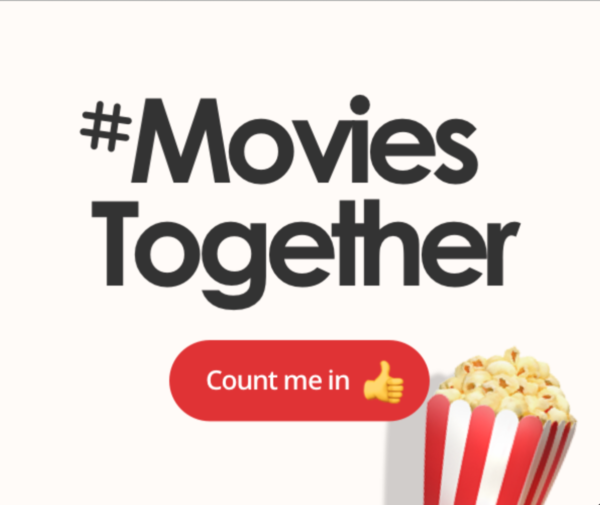

Share this post